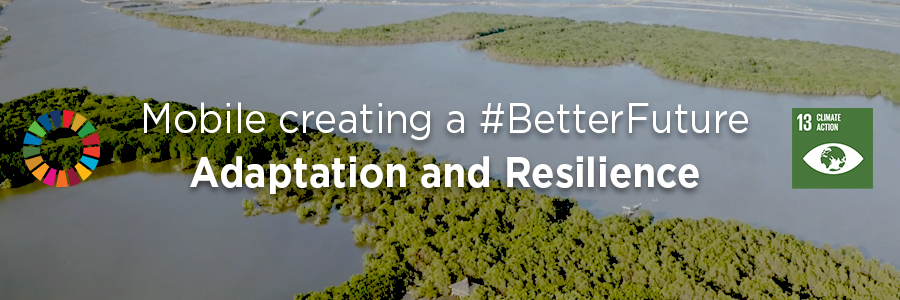
The mobile industry connects over 5 billion individuals worldwide. Every individual has a responsibility to protect and sustain our planet, but the mobile sector is also leading on supporting our people to adapt to the effects of climate change. Mobile operators leverage big data solutions to provide critical intelligence to assist immediate humanitarian relief efforts and inform long-term mitigation strategies of global problems. These invaluable network insights provide lifesaving solutions to the infectious diseases, extreme weather conditions and natural disasters exacerbated by climate change.
The mobile industry is uniquely placed to help mitigate the effects of climate change through the unparalleled networks, which connect billions of people and gather invaluable intelligent insights. Here are just some of the examples of how mobile initiatives are transforming communities and protecting environments:
Transforming the planet and protecting our people
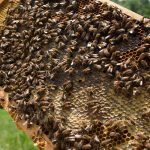
Safeguarding Endangered Species
Bee populations have been declining for the last 60 years due a range of different factors including climate change, lack of food availability and pesticides. Bees are so important because they pollinate a third of the world’s most nutritious foods such as fruits, vegetables and tree nuts. The Bee Corp is a company dedicated to protecting the bees. Through a partnership with cellular solutions company Nimbelink and mobile operator Verizon they have developed an innovative product, Queens Guard, which allows beekeepers to monitor the hives remotely so action can be taken if there is a problem. This technology also allows large amounts of data to be gathered, providing an overview of what’s going on with the bee population and how it can be helped.
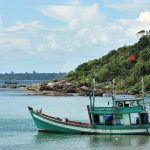
Monitor and Predict
Far EasTone and the Tainan City Government (Taiwan) have implemented a smart water disaster management system, allowing authorities to successfully predict flooding and potential for disasters. The industry is also increasingly bridging the data gap in weather monitoring and forecasting. For example, low-cost connected weather stations are being deployed at base stations for access to power, while mobile networks’ microwave links data is being utilised for accurate rainfall measurements.
Resource
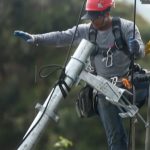
Disaster Relief
Mobile operators AT&T, Claro and Sprint in San Juan, Puerto Rico joined forces to reunite desperate loves ones and rebuild a capital city in ruins, following the worst natural disaster in country’s history. The power grid was severely damaged and 95% of the country was without network service, plunging Puerto Rico back into the dark ages. Getting the country back online was an urgent priority. The mobile operators in Puerto Rico understood that connecting frightened, desperate people to their loved ones was not just a duty, but a fundamental humanitarian need. Claro, Sprint and AT&T worked together in a way never seen before, sharing their resources, equipment and information to restore the network and, more importantly, hope to a damaged nation.
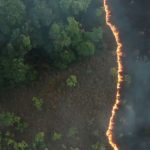
Forest Fire Prevention
Vodafone is to utilising the power of IoT to prevent lethal forest fires from ravaging entire communities in Portugal, allowing mobile technology to neutralise the earth’s natural ecological balance.
Resources
Tracking Global Heating
The mobile industry’s response to climate change on a global scale, is heavily informed through mobile data insights and needs to be future-thinking. On Mont Blanc in France, mobile operator Orange are using 70 monitoring stations to capture vital data on the evolving impact of global warming. This information is being used by third party organisations to tackle climate change. The average temperature in the Northern Alps is increasing twice as fast as the rest of the northern hemisphere, and the impact of this severe change is already clearly visible, both on the physical environment and its wildlife. The Orange Group’s partnership with the Centre de Recherches sur les Écosystèmes d’Altitude in Chamonix aims to provide technology alongside the support of their employee volunteers for one of the world’s most urgent and vital science projects. The project was also recently awarded the UN’s 2017 Momentum for Change prize.
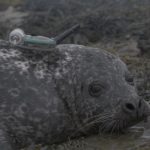
Protecting Marine Ecosystems
Working together and capitalising on mobile technology, is a powerful vehicle to catalyse a global solution. Vodafone partnered with Marine Scotland to track endangered harbour seals with mobile devices to prevent population decline and the further demise of marine ecosystems. In the last ten years alone, the Harbour Seal population in Scotland’s Orkney Islands has decreased by 70%. Mobile technology tracks where the seals are feeding and whether their food source, or lack of it, is the problem. A ‘mobile phone’ with a GPS tracker is harmlessly glued to the fur on the back of the seal’s neck and detaches during the annual moult in August, delivering invaluable insights into their feeding habits.

Monitoring Reforestation
Mobile operators Smart Communication and Edotco are rejuvenating mangrove forests in Malaysia and the Philippines through smart connectivity. In partnership with Ericsson, the connectivity is doubling the survival rate of regenerated mangrove forests that capture precious carbon from the environment. In the last 50 years, 50% of the world’s Mangrove forests have disappeared with a continuing decline of 1% each year as a result of climate change, pollution, deforestation and other human interference to the natural environment. Mobile technology has been at the heart of transformational reforestation projects, hailed as a solution to climate change.

Early warnings
Ncell has partnered with the Department of Hydrology and Meteorology (DHM) to send early-warning alerts to its customers living in high-risk areas of floods and landslides in Nepal, encouraging them to move to government-designated safe locations when water levels become too high.
The system is very simple. Water gauge stations measure water levels and then send the real time data to the DHM’s flood forecasting team who interpret the information. If a flooding threat is imminent, text message alerts are then sent to those who live downstream of major rivers. Citizens in these disaster-prone locations then have enough time to get to safety. When water levels return to normal they receive another text letting them know it is safe to return home. Ncell further supported customers affected by the disaster with free texts and calls.
Resources

Emergency Assistance
For example, mobile networks are facilitating access to information and coordinating assistance before, during and after climate-related emergencies. These efforts are often supported by operators’ in-house disaster response teams, while mobile technology has rapidly become an attractive delivery channel for many forms of aid. Bharti Airtel and the GSMA partnered with Be He@lthy, Be Mobile; an initiative born out of the World Health Organisation (WHO) and the International Telecommunications Union (ITU) to leverage mobile network insights to fight tuberculosis (TB). As the leading global cause of death from a single infectious agent for the past five years, India accounts for 26% of all TB2 deaths worldwide. By capitalising on mobile Big Data, combined with public information such as TB incidence, unique new insights can be generated to pinpoint geographical locations at risk of increased TB exposure. Understanding these patterns enables targeted strategies for prevention, diagnosis and treatment adherence in the battle to eradicate the TB epidemic by the UN’s goal of 2030.
Resources
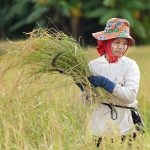
Educating farmers
Disseminating valuable weather information, complementing broadcast media. In a changing climate, weather content is highly valued by smallholder farmers accessing mobile agriculture information services, for example Ooredoo Myanmar’s Site Pyo.
Site Pyo (Cultivation) is an agricultural smartphone application (app) launched by Ooredoo Myanmar and their content partner, Miaki, in March 2016. The product rollout was supported by a matched funding agreement between Ooredoo Myanmar and GSMA under the mNutrition Initiative, funded by UK aid from the UK government (DFID). Under the agreement, the GSMA mAgri Programme provided consultancy throughout the product development cycle. As of December 2016, the app had over 150,000 users
With less than 10% internet access for people in Malawi, the 3-2-1 Service bridges the technology gap and allows people to search information anywhere they can use a mobile phone. Airtel Malawi has been a proud sponsor and host of the 3-2-1 Service, providing subscribers with voice and data services, mobile money, and free access to the 3-2-1 Service for over 3 years.Mobile phone penetration in Malawi is nearly 38% of the population. Airtel Malawi has almost 56% of the market share. The 3-2-1 Service provides trusted information to mobile phones, on demand, when people need it. The service is free. The text and audio messages are in local languages.
Orange Business Services and Dacom’s smart agriculture service leverages Big Data analysis to allow farmers to better understand and adjust to climate change.
New mobile financial services, including digital weather index insurance, are also emerging to strengthen the climate resilience of rural populations. Orange Business Services is delivering a scalable communications infrastructure and managed machine-to-machine (M2M) connectivity services to Dacom, an innovative high-tech company that develops and supplies ICT and sensor solutions that provide yield optimization to arable farms around the world. The managed M2M solution from Orange Business Services will enable Dacom to connect tens of thousands of devices for its agricultural customers in more than 30 countries around the globe.

Building resilient communities
Extreme climate variability is triggering devastating long-term consequences for people, contributing to forced migration. Mobile Big Data is uniquely placed to provide visibility on mobility patterns. Telefónica, in partnership with the United Nations Food and Agriculture Organization (FAO) are leveraging mobile Big Data to measure the internal displacement of citizens, by mapping movements from rural to urban areas. This can be used to support policy decisions allowing governments to facilitate long-term support for vulnerable communities.
Resources

Disaster support
The mobile industry is uniquely placed to help public health organisations, governments and NGO’s respond effectively and efficiently to epidemics and emergencies through harnessing invaluable mobile big data. Japan is exploiting the power of utilising Big Data for Social Good to fortify the country’s disaster preparedness. Combining the might of artificial intelligence and ubiquity of mobile connectivity, operator KDDI has ensured over 1,700 individual communities are receiving real time information related to impending natural disasters and extreme weather.
The GSMA works with mobile operators in collaboration with partners and international organisations on global climate action solutions. To get involved contact us [email protected]